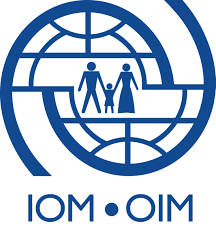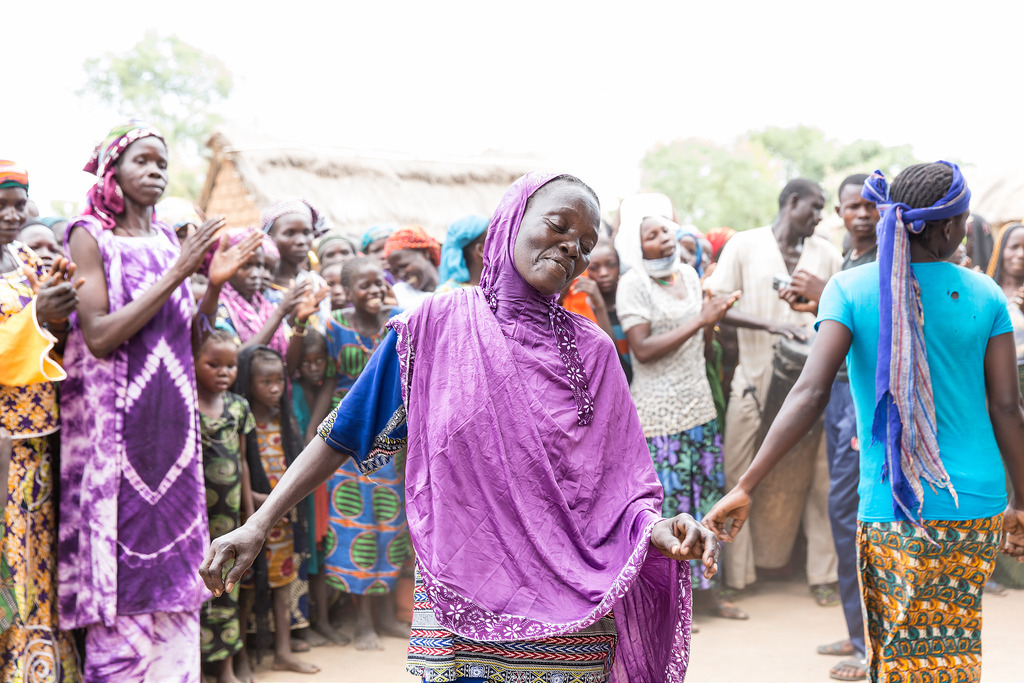This website uses cookies so that we can provide you with the best user experience possible. Cookie information is stored in your browser and performs functions such as recognising you when you return to our website and helping our team to understand which sections of the website you find most interesting and useful.

Who we are
With over 11,000 employees working in 400 offices worldwide, IOM implements projects around the world to support governments and migrants for promoting humane and orderly migration.
This broad range of job profiles calls for talented professionals with academic backgrounds that may include: international relations, law, medical professions, business, communication, information technology, finance and accounting, project management, human resource management, security, international development and others.

Established in 1951, IOM is the leading inter-governmental organization in the field of migration and works closely with governmental, intergovernmental and non-governmental partners.
With 172 Member States and 8 Observer States, IOM has offices in over 100 countries and works to promote humane and orderly migration for the benefit of all. It does so by providing services and advice to governments and migrants.
IOM works to help ensure the orderly and humane management of migration, to promote international cooperation on migration issues, to assist in the search for practical solutions to migration problems and to provide humanitarian assistance to migrants in need, including refugees and internally displaced people.
The IOM Constitution recognizes the link between migration and economic, social and cultural development, as well as to the right of freedom of movement.
IOM works in the four broad areas of migration management:
- Migration and development
- Facilitating migration
- Regulating migration
- Forced migration.
IOM activities that cut across these areas include the promotion of international migration law, policy debate and guidance, protection of migrants’ rights, migration health and the gender dimension of migration.
Gender and Migration
Around the world, more people are on the move than ever before. Many of them are seeking new opportunities and a better life for themselves and their families. Others are forced to move due to disaster or conflict. Gender is central to any discussion of the causes and consequences of migration, whether forced, voluntary or somewhere in between.
It is recognized that a person’s sex, gender, gender identity and sexual orientation shape every stage of the migration experience.
Gender influences reasons for migrating, who migrates and to where, how people migrate and the networks they use, opportunities and resources available at destinations, and relations with the country of origin. Risks, vulnerabilities and needs are also shaped in large part by one’s gender, and often vary drastically for different groups. The roles, expectations, relationships and power dynamics associated with being a man, woman, boy or girl, and whether one identifies as lesbian, gay, bisexual, transgender and/or intersex (LGBTI), significantly affect all aspects of the migration process, and can also be affected in new ways by migration.
It is therefore crucial to understand how gender interacts with migration and to respond accordingly. Taking into account gender-specific migration trends can mean the difference between implementing a project that successfully addresses the specific needs and capacities of all IOM beneficiaries, and one that fails to do so and perpetuates inequality. Given the gender-specific nature of migration, the following are central to IOM’s work: advocating for equal rights under the law in employment and mobility; combatting discriminatory migration practices; understanding how gender affects the types of migration undertaken; respondingto how gender influences access to social services, economic growth, capacities, risks and vulnerabilities; ensuring diversity and inclusiveness in consultations and participation in activities; and addressing how migration influences gender roles and relations.
IOM GENDER POLICY
For information on including gender considerations in migration data, visit the gender page of the Migration Data Portal
CELEBRATE AND VALUE DIVERSITY ON THE MOVE – WOMEN AND GIRLS ON THE MOVE HAVE A LOT TO SAY

A participant of IOM’s SIRIRI project to support community stabilization in the Central African Republic, celebrating her participation in the cash-for-work component of the project. Photo: IOM/Amanda Nero
IOM Celebrates Migrant Women and Girls—and Values Diversity on the Move
Switzerland – Women and girls represent a significant proportion of people on the move worldwide, all of whom carry with them a heart full of hope, a mind filled with ideas, and a diverse range of migration experiences.
IOM, the UN Migration Agency, stands with each and every one of them on International Women’s Day 2018 and embraces the official United Nations theme: Time is Now: Rural and urban activists transforming women’s lives. We stand together with them and raise our voices with and in support of all migrant women and girls.
On this day, we honour the women who have worked tirelessly to make their voices heard and pave the way towards women’s rights and empowerment. Displaying great strength and resilience, these women have highlighted the injustice they and others have experienced simply because of their gender.

Staffing Principles of IOM
Being a member of the IOM team requires the highest standards of efficiency, competence and integrity. As an international organization with a global mandate, IOM also aims to maintain an equitable geographical balance among its staff. As such, its recruitment efforts target, but are not necessarily limited to, nationals of its Member States. IOM is an equal opportunity employer and seeks committed professionals with a wide variety of skills in the field of migration. IOM staff work in multi-cultural environments, in which diversity and cultural sensitivity are valued.
Vacancy announcements are published for positions of three months to one year. IOM recruits under two types of contracts: (i) Fixed-term contracts for one year and (ii) Special contracts, with a short period of employment (from 3 to 9 months).
Recruitment takes place in the following categories:
- Professional:
Staff in the Professional category, referred to as Officials, have international expertise in a particular aspect of IOM’s work. IOM recruits at the levels of P-1 through to P-5, and Directors at D-1 level. Although IOM is not a part of the United Nations, it follows the job classification and compensation system regulated by the International Civil Servant Commission (ICSC), as established by the United Nations General Assembly. Details of the classification and conditions of International Civil Servants can be found on the ICSC Home page at http://icsc.un.org/.
- General Service:
This category includes local qualified staff with the skills and ability to provide support service to the Organization and its professional staff. In this category, recruitment may take place at G-1 to G-7 levels. IOM follows the job classification of the United Nations Common General Service Standard for Geneva-based Organizations.
Main Fields of Expertise Relevant to IOM Work:
- Administration
- Computer Science/Information Technology
- Economics
- Education/Training
- Finance/Accounting
- Fundraising
- Human Resources Management
- Humanitarian and Emergency Operations
- Languages
- Medical Services and Public Health Management
- Migration, Movement and Travel Management
- Programme Management
- Public International Law
- Public Relations
Working at IOM
Company Statistics
Date Established
Headquarters
